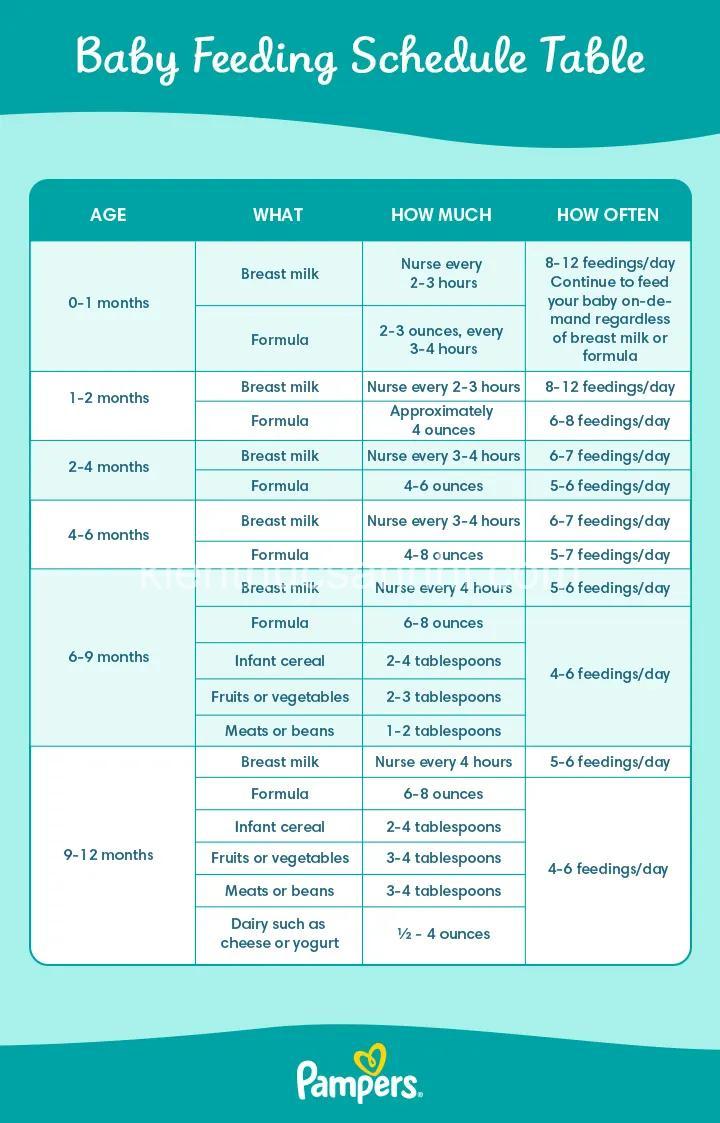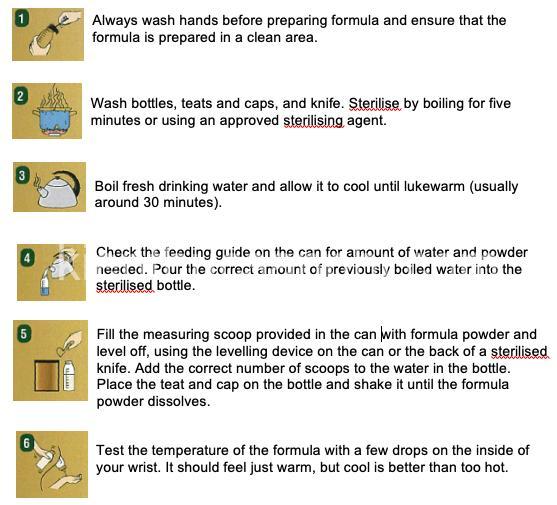
Track Baby Formula Intake: Crucial for Health & Growth. In today’s article, kienthucsannhi.com will explore with you in the most detailed and complete way. See now!
Why Tracking Formula Intake is Crucial for Your Baby’s Health
Imagine a tiny human growing at an incredible rate, each day filled with exciting milestones. Their growth and development rely heavily on proper nutrition, and formula intake plays a crucial role in this journey.
Accurate formula intake helps ensure healthy weight gain and overall well-being. You see, your baby needs the right amount of formula to thrive, and tracking their intake helps identify potential issues like underfeeding or overfeeding.
It’s like a delicate balance, and keeping track of formula intake helps maintain that balance. Imagine it as a puzzle, and each piece represents a crucial nutrient. Formula intake provides those essential nutrients for building a strong immune system and reducing the risk of deficiencies.

Simple and Effective Methods for Tracking Formula Intake
So, how can you keep track of your baby’s formula intake? Here are some simple and effective methods:
A. Traditional Methods
-
Using a Formula Feeding Log:
- It’s like a diary for your baby’s feeding, capturing every detail. A feeding log is simple to use, allowing you to track progress and see patterns in your baby’s feeding habits.
- To create a helpful log, include key details like:
- Time of feeding
- Amount of formula consumed
- Type of formula used
- Baby’s mood before and after feeding
- Number of wet and soiled diapers
- You can easily find printable logs or use a simple spreadsheet template. Remember, consistency is key!
-
Utilizing a Measuring Device:
- Imagine having a precise tool to measure your baby’s formula intake. Measuring devices like graduated bottles, syringes, or measuring cups offer accurate measurement, helping you understand your baby’s individual needs.
- It’s like a detective’s toolkit, helping you uncover the right amount of formula your baby needs for each feeding.
B. Technological Solutions
-
Smart Baby Bottles:
- In the world of technology, we now have smart baby bottles that do the tracking for you! These bottles feature sensors that automatically record the amount of formula consumed.
- Think of it as a high-tech babysitter, monitoring your baby’s intake with precision and ease. However, it’s important to note that these bottles can be more expensive and not all brands are compatible with each other.
-
Baby Feeding Apps:
- Apps are like virtual assistants, helping you keep track of everything, from feeding times to formula amounts. Baby feeding apps offer a user-friendly interface and data storage capabilities, making it easy to monitor your baby’s feeding progress.
- While they can be incredibly helpful, remember to consider privacy concerns and the need for manual input.
Tips for Accurate and Consistent Tracking
To ensure the accuracy of your tracking, consistency is key. Think of it as building a strong foundation for understanding your baby’s needs. Inconsistent records can make it difficult to identify patterns and trends in your baby’s formula intake.
When tracking, be sure to record key information:
- Time of feeding
- Amount of formula consumed
- Type of formula used
- Baby’s mood before and after feeding
- Diaper changes and frequency
These details paint a clear picture of your baby’s feeding journey.
The most important thing is to choose a system that works for you! Experiment with different methods and find what feels most comfortable and efficient. Remember, consistency is essential for understanding your baby’s unique needs.
Tracking Formula Intake for Different Age Groups
A. Newborn Babies
Newborn babies are like tiny explorers, discovering the world around them. Their growth is rapid, and their nutritional needs are specific. It’s crucial to track formula intake closely during these early months, as it provides vital information about their growth and development.
Tracking helps identify any potential feeding issues and allows you to seek professional help if needed.
B. Older Babies
As babies grow, their appetites change, and their feeding patterns evolve. Tracking formula intake remains important, as it helps you monitor those changes and identify any trends in their growth.
Remember, every baby is unique, and their needs may differ. Adjust your tracking methods to accommodate their changing appetite and growth patterns.
Seeking Professional Guidance for Formula Feeding
Your baby’s health is paramount, and it’s essential to seek professional guidance when it comes to formula feeding.
-
Consulting with Healthcare Professionals:
- Pediatricians and lactation consultants are your trusted guides in the world of formula feeding. They can provide personalized advice based on your baby’s individual needs and concerns.
- Think of them as experts, ready to answer your questions and address any worries you may have.
-
Understanding Baby’s Growth and Development:
- Regular checkups with your pediatrician help assess your baby’s growth and development. Tracking formula intake plays a crucial role in understanding these milestones and identifying any potential issues.
- If you have any concerns regarding your baby’s growth or development, don’t hesitate to consult with a healthcare professional.
FAQs About How Can I Keep Track of My Baby’s Formula Intake?
How often should I track my baby’s formula intake?
It is recommended to track your baby’s formula intake at every feeding, especially during the first few months of life. This helps establish a consistent pattern and ensures you have accurate information about their consumption.
What if my baby doesn’t finish their bottle every time?
Don’t worry if your baby doesn’t finish their bottle every time. Babies have different appetites, and it’s perfectly normal for them to leave some formula behind. However, if you notice a consistent decrease in intake or if your baby seems excessively hungry or fussy, it’s important to consult with your pediatrician.
What are some signs of overfeeding?
Signs of overfeeding include spitting up excessively, vomiting, being unusually fussy or irritable, and having frequent, watery stools. If you observe these signs, talk to your pediatrician. It’s crucial to find the right balance for your baby’s individual needs.
What kind of information should I include in a formula feeding log?
A formula feeding log should include information like the time of feeding, the amount of formula consumed, the type of formula used, your baby’s mood before and after feeding, and any other relevant observations, such as the number of wet and soiled diapers. This helps you create a detailed picture of your baby’s feeding habits.
How long should I track my baby’s formula intake?
It’s generally recommended to track your baby’s formula intake until they reach a consistent pattern of feeding and show signs of healthy growth. However, you can always continue tracking if it provides you with valuable information or helps you manage any feeding-related concerns.
Conclusion
Keeping track of your baby’s formula intake is crucial for their healthy growth and development. It’s like a map, guiding you towards optimal nutrition for your little one.
By following these tips and seeking professional guidance, you can ensure your baby receives the right amount of formula to thrive. Don’t hesitate to leave comments, share your experiences, or explore more valuable information on baby care at kienthucsannhi.com. Let’s work together to create a happy and healthy journey for our little ones!
Note: This content is for informational purposes only and should not be considered medical advice. Please consult with your pediatrician or healthcare professional for personalized guidance and support.







